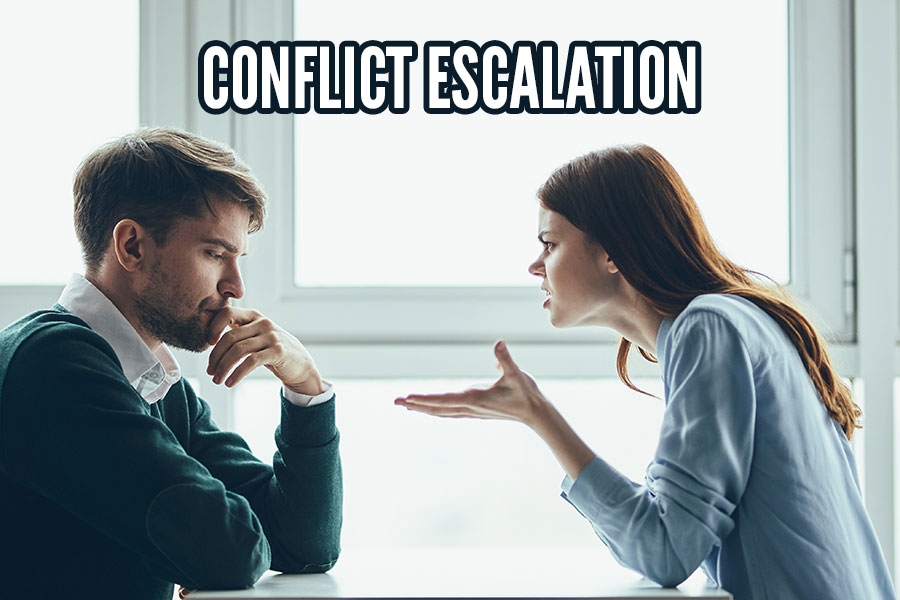 When you find yourself in a conflict, you can back down… or you can escalate. How far should you take it? How do you know what the right thing to do is? A few simple rules can guide you.
When you find yourself in a conflict, you can back down… or you can escalate. How far should you take it? How do you know what the right thing to do is? A few simple rules can guide you.I recently binge-read a series of colorful Quora answers from ex-convict Matthew Holmes. Holmes was someone who grew up, more or less, inside the US penitentiary system, and shares advice on how to survive the hostile conditions there. He contrasts the prison world with the outside world; inside the prison system, a prisoner's life is a Hobbesian war of all-against-all, where there is no real law and no one you can trust to have your back but you.
One of the many repeating sentiments in Holmes's prison advice is you must be prepared to defend your reputation at any time, and go to almost any length to do so. Holmes stopped short of killing anyone in prison (as doing so would've added an automatic life sentence to his 10-year term), but came close to it on several occasions, where he severely beat inmates who tried to fight or rob from him.
In terms of general principles, I'd call his approach to conflict "always escalate a confrontation until you win."
For some time, I've followed 'always escalate' as a general (but not absolute) rule. I generally follow it with:
- Girlfriend drama
- Some business disputes
- Some physical confrontations
- Moral high ground debates
- Any kind of interpersonal argument
However, the real world isn't a penitentiary. It is not (for the most part) a Hobbesian situation of all-against-all.
Thus, much of the time, you will not want to continue escalating to the extremes in real life situations. In many cases it's counterproductive; the gains you get from continuing to escalate outweigh the costs.
Today I want to talk about the 'always escalate' philosophy -- which is one I've long found helpful -- and where the limits are to it where you decide to hop off that train and not always escalate.









SHOW COMMENTS (5)